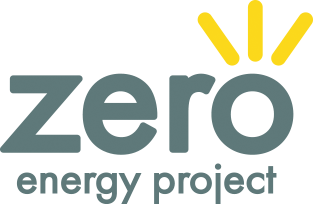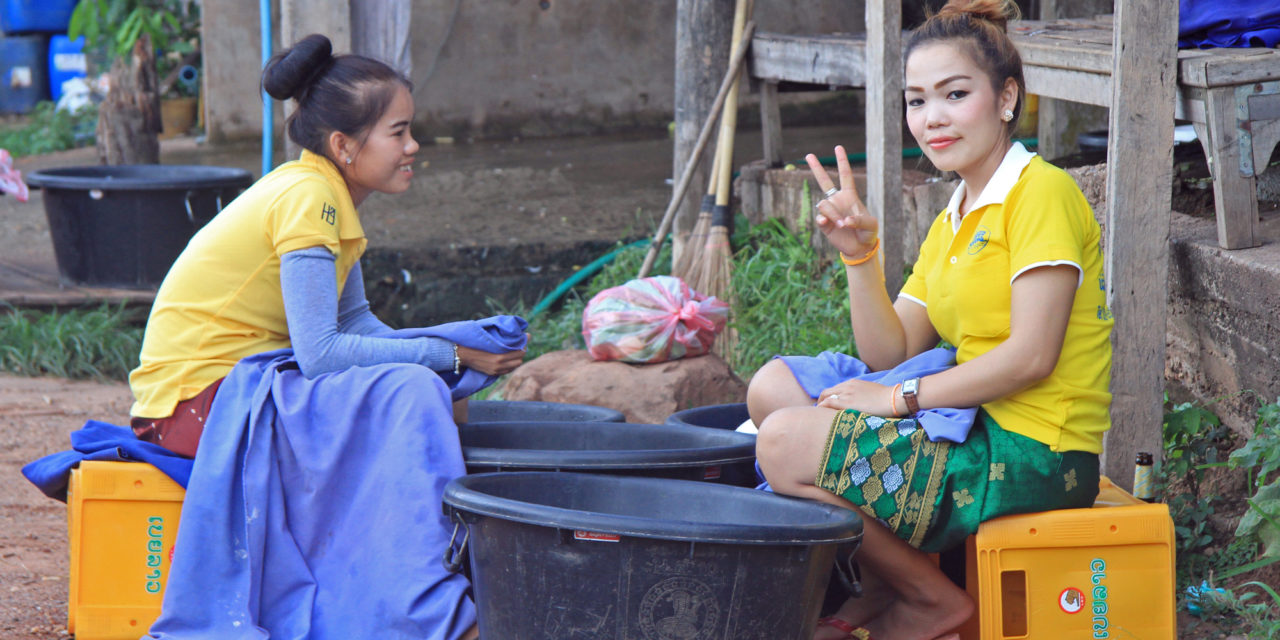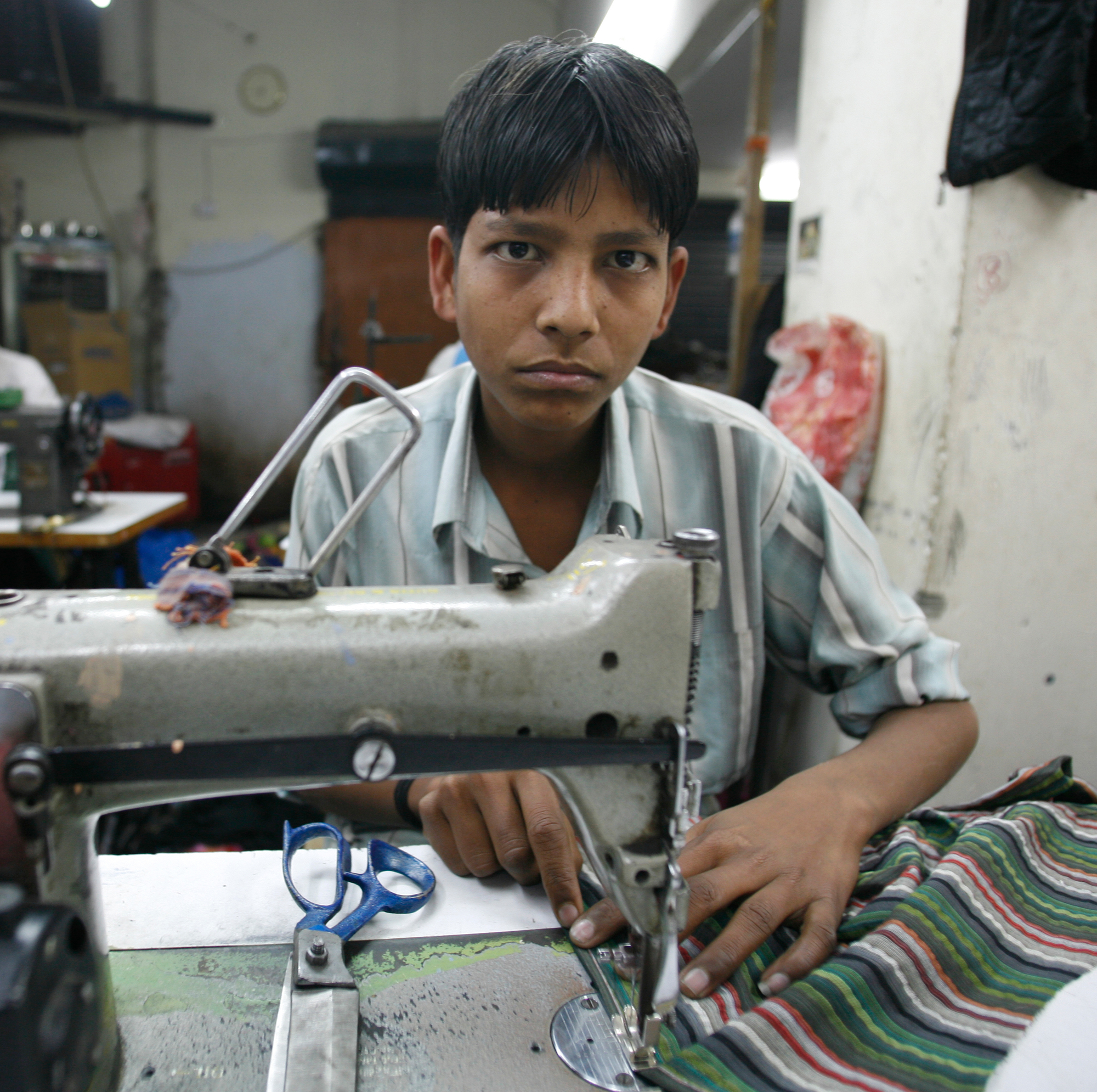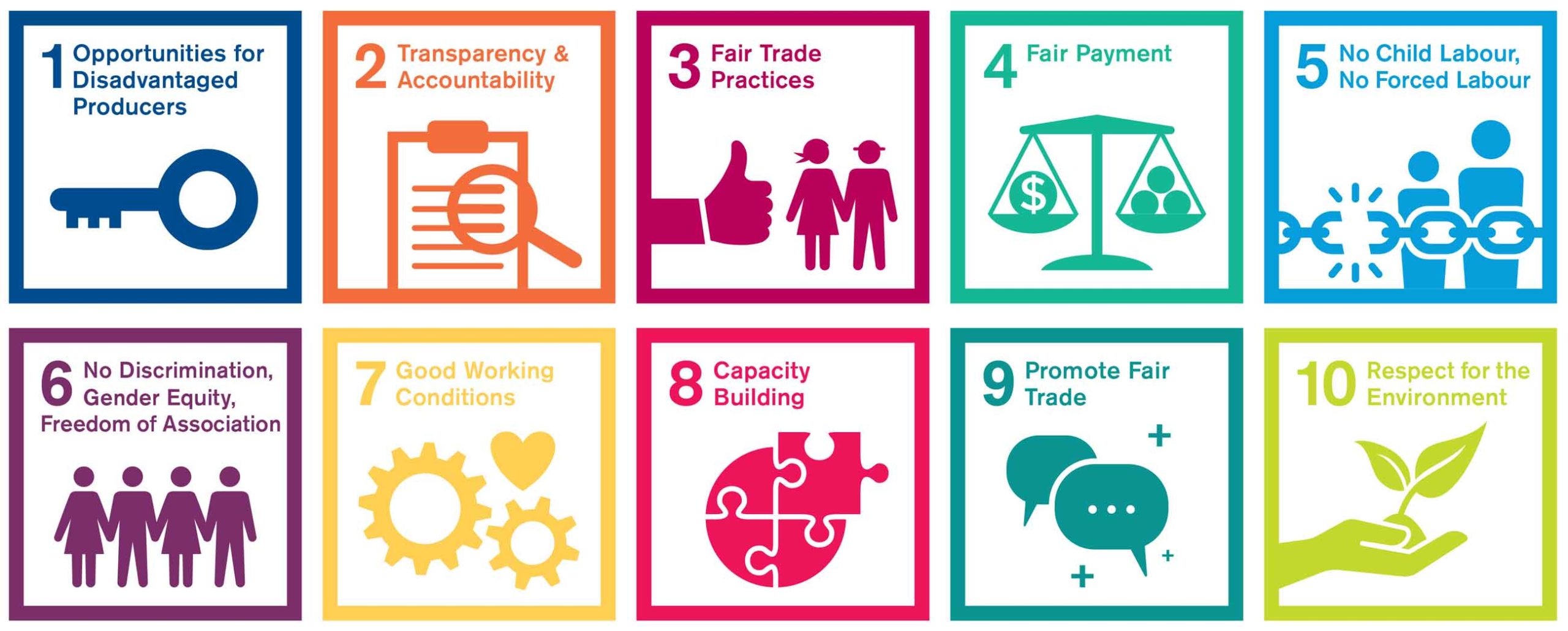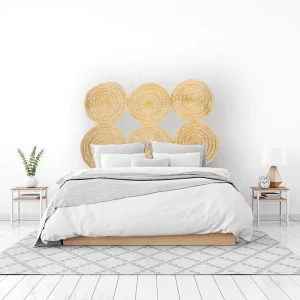By Indiana Lee
Though environmentalists have been talking about climate change and our personal impact on the world for decades, sustainability in home construction and operation has only recently become standard. It’s normal now to walk into a store and see a bevy of products with all sorts of labels and green certifications claiming that the product is eco-friendly, fair trade, natural, biodegradable, etc. While some consumers might immediately buy into these labels, it’s important to understand which are vague (sometimes misleading) descriptions and which ensure that the product is, in fact, what it says it is.
Consumers see the Fair Trade designation more and more, likely due to newer generations of buyers who make more values-based purchases. The global Fair Trade movement differs wildly from free trade in that Fair Trade describes commerce based on the principle of being fair to poor workers and producers. In addition, Fair Trade certifications include sustainable practices and community investment.
Authentic Fair Trade certifications—there are a few—ensure that products meets specific equity requirements. If a brand or product is Fair Trade, manufacturers can use various official labels or logos to identify them. If an item is identified as using “fair trade principles,” without official designation, consumers should look to reputable dealers with transparent information on the sources of materials and fabrication.
However, these labels and logos can sometimes be confusing, leaving customers wondering how green or equitable a product or specific brand actually is. Consumers can expect to pay a premium for brands that pay fair wages, practice sustainability, and invest in communities. So you want to make sure that a company or product is genuinely Fair Trade.
To better understand what you’re buying, let’s look at what Fair Trade means generally, and at the various certifications and labels. Brands may market themselves as fair trade, but just like “greenwashing” with not-actually-sustainable products, a company may be “fairwashing”: falsely advertising products as Fair Trade and eco-friendly.
What is Fair Trade?
Fair Trade, in the simplest sense, is trade between companies that ensures the producers of a product or materials are paid fair prices. Typically, this refers to products from smaller, developing countries where workers and farmers may have a harder time making money to support themselves. With Fair Trade, producers and workers in developing countries can earn a livable wage that can generate growth in the wider community.
Furthermore, Fair Trade ensures that workplace conditions are safe and healthy and that materials are procured ethically with transparent practices and sourcing that also protect the environment. Often, Fair Trade offers development funds that can improve the daily lives of workers in their local community.
Understanding Fair Trade Labels and Logos
While all of the official Fair Trade certifications and logos promote equity, they each have their own specifications. It’s helpful to understand what each means to know exactly what your premium is buying, where the ingredients came from, and if you can trust that materials were procured ethically and sustainably.
Before any product can become certified Fair Trade, the producer must meet certain standards and go through inspection. These include
- identifying the producer and where the ingredients or materials came from
- determining minimum price and Fair Trade premium
- ensuring labor laws are followed
- setting the cost of inspection, certification, and licensing
- inspecting the supply chain
- ensuring the end products are properly labeled
There are three common Fair Trade labels and logos that you might see in the US.
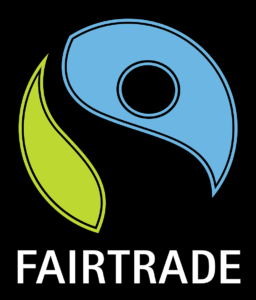
Fairtrade International: perhaps the most commonly known label worldwide. They believe in connecting disadvantaged producers to consumers and promoting fairer trade conditions to empower producers to combat poverty. More than 27,000 food products, sports balls, and textiles carry this label and are sold in 120 countries.
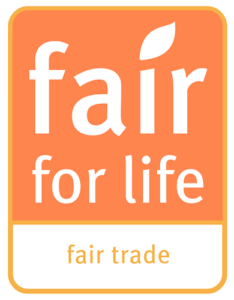
Fair for Life examines every step of the supply chain process: producers, manufacturers, and traders. They believe in ensuring fair and positive relations between producers and their cooperatives, between workers and their employers, and between sellers and buyers. Additionally, the For Life certification identifies organizations committed to social responsibility. More than 500 companies and products carry these certifications, largely agricultural.
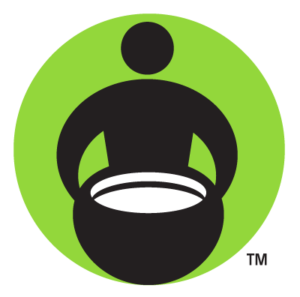
Fair Trade USA: a nonprofit organization that has granted Fair Trade certification to goods from more than 800 manufacturers and distributors. They believe in enabling sustainable development and community empowerment by cultivating a more equitable global trade model. Products include foodstuffs, apparel, flowers, health and beauty items, textiles, and more.
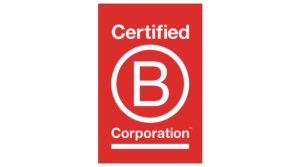 Interestingly, few furnishings and building products carry these Fair Trade designations. Consumers might also look for B Corp Certification. A “benefit” corporation is an entity (recognized in most states) driven by both mission and profit. Both shareholders and stakeholders drive business decisions. B Corp Certification means that a company has been evaluated for environmental performance and social responsibility all along the supply chain, from input materials through charitable giving. For instance, certified B Corp Avocado sources Fair Trade certified, 100% organic cotton for its vegan mattresses and sheet sets. This kind of focus on transparency and accountability builds trust with consumers, suppliers, employees, and investors.
Interestingly, few furnishings and building products carry these Fair Trade designations. Consumers might also look for B Corp Certification. A “benefit” corporation is an entity (recognized in most states) driven by both mission and profit. Both shareholders and stakeholders drive business decisions. B Corp Certification means that a company has been evaluated for environmental performance and social responsibility all along the supply chain, from input materials through charitable giving. For instance, certified B Corp Avocado sources Fair Trade certified, 100% organic cotton for its vegan mattresses and sheet sets. This kind of focus on transparency and accountability builds trust with consumers, suppliers, employees, and investors.
How Brands and Consumers Use Fair Trade
This normalizing of sustainability in the home has led to more brands looking for ways to market corporate social responsibility, beyond just philanthropy, alongside sustainability. While many companies are genuinely attempting to evolve to encompass more sustainable products and practices, not all brands are honest and ethical.
Brand marketing is a way for companies to grow their brand equity and value. For some, this means genuinely embracing a new corporate culture and adapting to become more sustainable and Fair Trade certified. While it’s not perfect, an official Fair Trade certification guarantees that a product protects the environment and supports improved working conditions, lives and communities. Together, consumers and businesses have created a market and a social movement. Corporate marketing, including word of mouth and social media, has been a key factor.
Fair Trade and sustainability are growing, hand in hand. For instance, Fair Trade USA encourages farms and forestry to become more regenerative and eco-friendly. Their standards for companies cover water and chemical runoff, control of pests and waste streams, air pollution, and recycling. Often, a company that protects workers, protects their local environment.
Buying fair trade has the power to change lives and lift up communities and the environment. Fair Trade enables traditionally marginalized workers in some of the poorest regions of the world to earn livable wages and enjoy safe and healthy working conditions. Though these products are often more expensive, official Fair Trade certification ensures that your purchases are ethically sourced and that they minimize our negative impact on the environment.
Some of the links in this article are affiliate links, meaning at no additional cost to you, we will earn a commission if you click through and make a purchase. Thank you for helping us continue to bring you great content.
Fair Trade Products for Your Home
Here are a few of the terrific Fair Trade home furnishings we’ve discovered. If you find one you love, let us know at content@elemental.green.
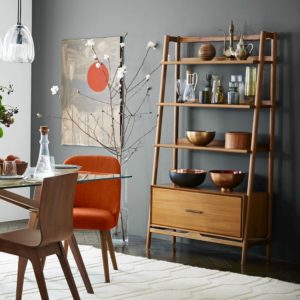
This Mid-Century Bookshelf with Drawer from West Elm adds a unique flair to your design. The color and grain of the natural wood is a striking accent in contemporary interiors and fits right in more organic or rustic homes. Fair Trade Certified via Fair Trade USA, this unit is made of sustainably sourced solid Eucalyptus and engineered wood covered in an acacia veneer; GREENGUARD Gold certified.
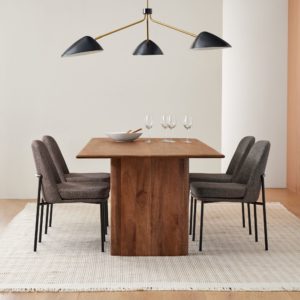
The Anton Dining table and wood benches from West Elm feature solid-wood beauty and durability. This is a contract-grade item, showing natural variations of solid mango wood, sustainably sourced from trees that no longer produce fruit. Certified by Fair Trade USA, the table is strikingly geometric, softened by elongated oval and curved edges.
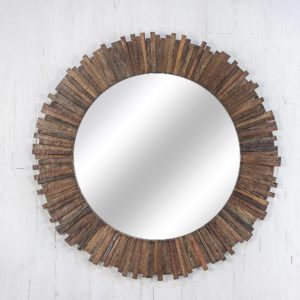
Arnon Thongkaew creates these handmade mirrors for sale on Novica.com, a mission-driven online marketplace that empowers artisans and preserves cultures worldwide. Born and raised in Northern Thailand, Arnon’s workshop procures teak from old houses and furniture to make new, original designs. This wall decor item uses small scraps of teak wood to create a handcrafted tribute to the sun. Note that Novica’s hundreds of artisans are not Fair Trade certified, but they employ Fair Trade practices and transparent sourcing of materials.
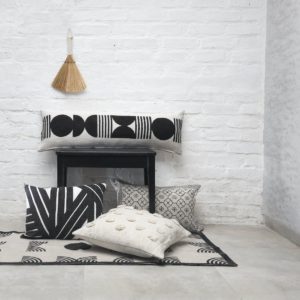
Made Trade is proud to bring the striking Celestial Runner, hand-woven by artisans in India, to the American market. Casa Amarosa is a woman-led POC-owned brand that provides economic and educational opportunities to traditionally marginalized communities – while preserving heritage techniques passed down through generations. Hand-block printed on 100% cotton for a one-of-a-kind vegan item, guaranteed to spark a conversation about quality and ethical production.
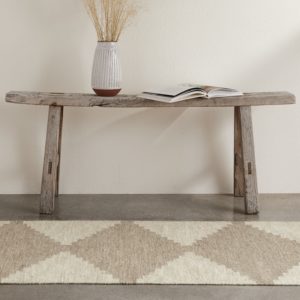
Parachute has committed to sourcing only Fair Trade certified rugs, beginning in 2022. Currently, their rugs are ethically manufactured by artisans in Panipat, India. Parachute’s partner there is an 80-year-old textiles factory committed to social and environmental responsibility, including education and renewable energy. We’re intrigued by the geometric feel and neutral palette of the Medallion Wool Kilim rug. A kilim is a durable, flat weave rug often used as a prayer mat. The Medallion is a modern version, handmade with dye-free wool yarns. This gives each rug its own subtle variegation.
Hand-woven from elephant grass, the KAZI All-Natural Headboard is beautiful enough to be a focal art piece. KAZI sources local materials and builds capacity in local communities of artisans across rural Africa. It is a member of the smaller Fair Trade Federation, which focuses on transparency in supply chains and mutual collaboration and respect. KAZI products for your home can be found on Made Trade.
The author: Indiana Lee is a freelance writer living in the Northwest with a passion for the environment and wellness. She draws her inspiration from nature and explores the outdoors regularly with her two dogs. Find her on Twitter @indianalee3.

